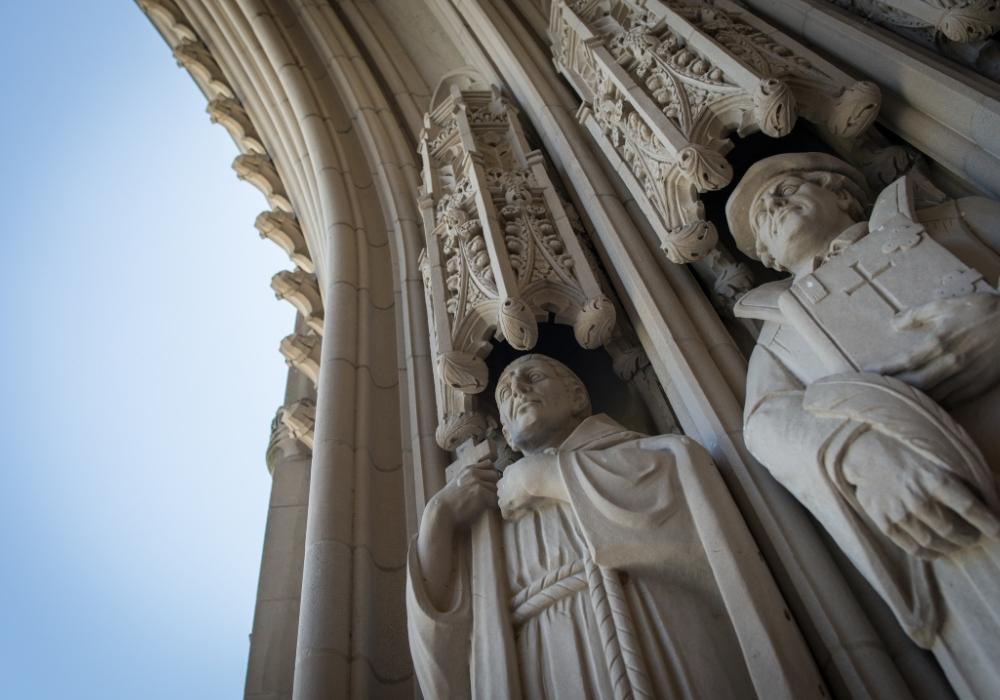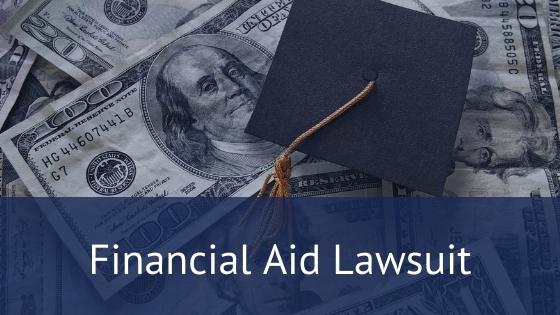A lawsuit was just filed against 16 top universities, alleging that they conspired to reduce the amount of financial aid offered, and acted in a manner that violates antitrust laws. In this article, we’ll cover what the lawsuit alleges, some background on why it’s being brought, and what the eventual fallout could be.
We’ve written about financial aid before, but it remains a contentious subject due to the rising cost of colleges. When college is the only ticket to the American dream, it becomes all the more important to graduate, no matter the cost. While we still do not know all of the facts of the financial aid lawsuit, we do sympathize with everyone who struggles to pay for college.
What is the Financial Aid Lawsuit?
Five students who attended top universities are alleging that the schools named participated in antitrust behavior when they collaborated to determine the standards for financial aid awards for students. The suit further alleges that these schools are engaged in price-fixing, and are trying to remove competitive financial aid as a factor in college decisions for their group of schools.
The suit alleges nine schools made admissions decisions in part based on a student’s financial need. These schools are Columbia, Dartmouth, Duke, Georgetown, MIT, Northwestern, Notre Dame, UPenn, and Vanderbilt. Seven schools are alleged to have participated in price-fixing with the previously listed nine. These are Brown, Caltech, Cornell, Emory, Rice, UChicago, and Yale.
The suit alleges that since these schools use a shared formula to determine a family’s financial need, then financial aid awards are kept static between the schools. In a competitive market, schools would be incentivized to offer increased awards to attract students they wish to recruit, which many public schools do currently through offers of merit scholarships.
Finally, the suit alleges that these schools are not truly “need-blind” since they take into account prospective donors when making admissions decisions. This constitutes a breach of the schools’ pledge to not consider a student’s ability to pay. This would invalidate the law which exempted these schools from antitrust statutes and is the basis of the suit. The lawsuit is seeking an injunction against these schools, along with financial compensation for any students who attended the schools and received financial aid.
If you are interested in reading the full complaint, it may be viewed here.

The 568 Group
Many of the schools named in the lawsuit are or were members of the 568 president’s group. This is a community of need-blind schools founded by a group of school presidents in 1998. The group has a consensus methodology they use to determine a family’s financial need. This shared methodology is where the price-fixing allegation comes from, and it is possible that further colleges could be named in the suit as it progresses.
What is Need-Blind, and What are Donor Prospects?
The term need-blind in admissions means that a school does not take into account a student’s ability to pay when considering them for admission. Need-blind schools are a minority; most colleges are need-aware, which means they consider a student’s ability to pay to some extent when making admissions decisions.
This all boils down to money. The price of college has increased a lot in the past thirty years, and the amount of spending done by universities has increased alongside it. Most need-blind schools are ones with enormous endowments, who are able to make up funding needed based on their investments, without relying on tuition at all. Other schools, however, rely on their revenue from tuition to balance their budgets, and thus must pay attention to whether or not students can pay.
Donor prospecting is scouting done by another department in a university. In addition to raising money via tuition, universities solicit donations from alumni, philanthropists, and the parents of students. The children of current or prospective donors are then marked and can receive a boost in the admissions process. Indeed, this is part of why schools favor legacy admits, due to the donations they receive from alumni.
The group of nine schools named in the lawsuit allegedly takes prospective donor status into account when making admissions decisions. This could be seen as taking into account a student’s ability to pay, and thus make the school not actually need-blind. This would mean the schools no longer get the antitrust exemption provided to need-blind universities, and mean the lawsuit could proceed.
What This Lawsuit Means
We are not lawyers, so we cannot comment on the possible legal ramifications of this lawsuit. Indeed, we don’t have the experience needed to tell you whether or not the suit has merit, and it is possible that a judge will dismiss it out of hand. We do, however, want to discuss the possible impact of this lawsuit on college admissions.
In many ways, college admission is a black box. Some admissions departments run blogs, and former admissions officials will give interviews on the process, but overall there’s only so much we know about how students are evaluated and admissions decisions are made. Some of this opacity is to protect the privacy of students, and some is to shield schools from criticism. If you don’t know how the sausage is made, it’s much harder to critique the process.
Much of what we know about the admissions decision-making process at top universities come from a previous lawsuit, leveled against Harvard University, alleging discriminatory practices in their admissions decisions. While we covered that in a previous article, one of the side effects of the lawsuit was the enormous quantity of internal Harvard admissions documents released to the general public.
A lot of what we can confidently say about admissions comes from the documents used as evidence in the Harvard lawsuit. While we don’t know what the end result of the current lawsuit will be, it is possible that we will see a similar trove of documents released. This will be good for students if it happens.
Knowledge, as they say, is power. The better students understand the admissions process, and how schools will evaluate them, the better they can prepare, and the more confident they will be when applying to colleges. While we do not know what the results of this lawsuit will be, we are looking forward to a peek behind the curtain of college admissions.
Will This Lawsuit Impact You?
Probably not, but maybe. It is unlikely for the lawsuit to impact your current enrollment prospects or chances of financial aid, but depending on what is uncovered, and what judgments are made, how financial aid is awarded at top universities could be changed drastically.
As we said before, we are not lawyers, and we cannot say how this lawsuit will be decided. We do, however, look forward to seeing what we can learn about college admissions, and what the ramifications of this lawsuit will be on financial aid decisions.
While this lawsuit may have major ramifications within college admissions and financial aid, the legal system is slow. Don’t expect results overnight, and don’t expect changes to come quickly.
Final Thoughts
College is incredibly expensive, and the idea that paying for it has been made unnecessarily difficult is emotionally stirring. While we cannot judge the legal merits of the case, we cannot deny that their message will resonate broadly, as ever more students struggle to afford a college education.
Trying to maximize the amount of financial aid you will get is a legitimate approach to college applications. If you want advice on applying strategically to target financial aid, or want to know how to maximize your awards, schedule a free consultation with us. We work hard to make sure our students find the solution that works best for them and are always happy to hear from you.








